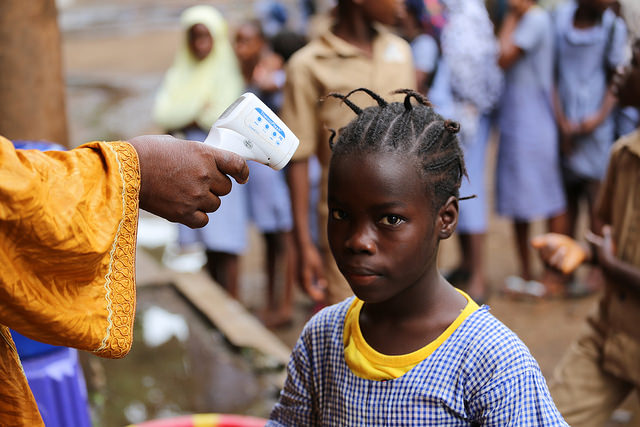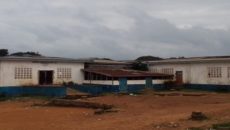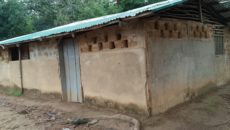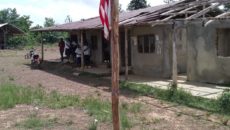“When you have been bitten by a snake, the sight of a lizard frightens youâ€- Liberian proverb.
In 2014, life as we knew it changed in Liberia. Our cultural practices, social interactions, traditional and religious ceremonies, burials, and even the way we knew to love and care for our families became sources of transmission of the deadly Ebola Virus Disease. To stop Ebola, Liberians had to stop the way we had always lived and interacted with each other. Ebola attacked our way of life.
Liberia, Sierra Leone, and Guinea were the countries hardest hit by Ebola. Of the three, Liberia recorded the most deaths but became the first to be declared Ebola-free. And so, with the news of the Coronavirus pandemic currently sweeping the world and attacking the way others have always lived, loved, and cared, Liberia remembers.
Like most governments, ours was slow to react. Knowledge about the disease and its fatality rate were largely unknown even as its symptoms mirror malaria, a common tropical ailment widely known to Liberians. This, too, raised doubts in the population about the outbreak. Doubts and fears are the fertile grounds for the transmission of such diseases.
When the government finally acted with a level of reliable scientific understanding of Ebola and how it could be transmitted, one of the measures put in place was to close all schools across the country. A good measure, no doubt, except that there was no plan to mitigate the indefinite closure of schools. Even worse, the already poor health infrastructure had collapsed under the infectious strain of the disease.
Thankfully, so far, we have had no confirmed cases of COVID-19 in Liberia. However, in a land of many proverbs, Liberians know that “you do not stand, uninterested and hands akimbo, as your next-door neighbor’s house burn, especially when you share a fence.â€
So far, I commend the Government of Liberia for taking the required preventive and pre-emptive measures, including proper rules on manning borders, airports, and seaports, as well as medical surveillance, screening, monitoring, and quarantine, should any be required. We may not have the quality of health infrastructure we would like, but we possess the experience purchased with human loss and painful memories.
Of course, this is no guarantee against the invasion of COVID-19. There are a few cases on the continent, but it does feel like the devastation of Ebola has helped us prepared for and understand the raging threats we face with the Coronavirus Pandemic. And so, Liberians know that the best time to prepare to fight COVID-19 is before anyone is infected. It also means the best time to plan for the public measures, including the closure of schools, and the telling consequences on children and parents, is now.
School authorities should begin to look at this period as an opportunity to reinforce good hygienic and sanitary practices and behavior. This is the time to encourage kids to wash their hands more often. It is also the time to introduce educative sessions on virus infection and prevention, especially during the regular morning school devotion and assemblies, and to be clear about the mode of transmission, signs and symptoms, as well as available referral pathways for those showing symptoms and/or suspected of being infected.
Students should be reminded not to touch their faces. And teachers and caregivers in early childhood centers should caution their pupils against touching their bodies or each other. Undoubtedly, this is a difficult feat for children. But it is one that is needed if we are to keep them safe.
Schools need to include in their immediate planning programs, the preparation of home packages comprising lessons which correspond to the required grade-level, and curriculum by which students can remain engaged in the event of a nationwide shutdown of schools. On a weekly basis, parents can collect the packages for their children and return the works of their children to the schools.
Liberia’s educational system does not currently possess the capacity for online learning in the event of the closure of schools. At the same time, our children are too far behind to simply sit out an indeterminate period away from learning. We need to creatively plan to keep our children academically engaged should our situation and circumstance come to it.
A global pandemic is what it is – a public health threat to every nation of the world. As we tap into our experience with Ebola to prepare to fight COVID-19, we must also prepare to help our children remain engaged and continue to be educated. The time we have to prepare to do this is now.
To the extent that the Coronavirus is attacking the ways people live, it is similar to Ebola. And in that regard, we can fight back and succeed. But like our fight against Ebola, it will require our collective effort. The government, doctors, nurses, other healthcare workers, political, traditional, religious and community leaders, teachers, students, parents – all of us looking after ourselves, our communities, our homes, our places of work, and adapting the behavior needed to both prevent ourselves from contracting the disease, and securing others from being infected. And we need to plan and be prepared for our children.
The Coronavirus Pandemic is not unlike the Ebola Virus Epidemic – for both, as we would say in Liberia, “an ounce of prevention is better than a pound of cure!â€
Featured photo by GPE/Tabassy Baro



